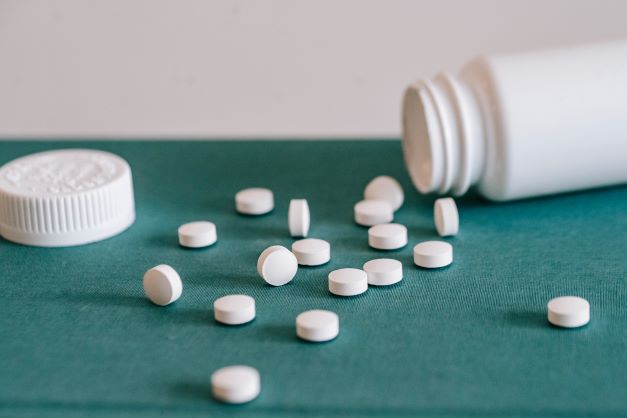The research is the latest to suggest the harms of diagnosis and drug treatment for ADHD outweigh benefits that are small, if any.
A new study has found that a diagnosis of so-called attention deficit hyperactivity disorder (ADHD) does not lead to any improvement in teens’ quality of life when compared to teens who were not diagnosed with ADHD, but is associated with lower self-esteem, worse social behavior, and a significantly increased risk of self-harm. The negative outcomes were greatest in those adolescents who were diagnosed with ADHD earliest (6-7 years of age).
Researchers led by Luise Kazda, M.P.H., from the Sydney School of Public Health at the University of Sydney, analyzed self-reported data on the quality of life of 393 adolescents aged 14 and 15 who were diagnosed with ADHD (72% of them male), as compared to 393 non-diagnosed adolescents matched for gender and similar levels of hyperactive/inattentive behavior.
The researchers found that teens with a diagnosis of ADHD have no better quality of life as a result of the diagnosis when compared to non-diagnosed teens. However, the ADHD diagnosis was associated with significantly worse outcomes on five measures: academic self-concept, social behavior, sense of belonging at school, self-efficacy, and self-harm. In particular, ADHD-diagnosed teens had a two and a half times greater likelihood of self-harm as compared to non-diagnosed teens.

“Unfortunately, our results indicate no beneficial associations of an ADHD diagnosis with adolescents’ QOL [quality of life], which is highly concerning,” the researchers wrote in JAMA Network Open. “It implies that the harms associated with an ADHD label (such as stigma, prejudice, deflection from other problems, or the perceived inability to change) may not be offset by benefits associated with the diagnosis or treatment.”
The researchers concluded that the ADHD diagnosis itself is a potential source of harm to children and that the treatment given to children is not benefiting them, writing that “youths may be harmed by the diagnosis and that interventions to support them are not achieving the desired effect.”
The study’s authors advise policymakers and mental health practitioners to develop educational solutions that better support children’s challenging behavioral traits, “rather than solely relying on medicalizing and labeling them.”
“Unfortunately, our results indicate no beneficial associations of an ADHD diagnosis with adolescents’ quality of life, which is highly concerning.”
– Luise Kazda, MPH, School of Public Health, University of Sydney
The typical treatment for ADHD is psychostimulant drugs. Some 3.2 million American children under the age of 18 are currently taking ADHD drugs, including 58,000 children 5 years of age and younger. The known harms of ADHD drugs include restlessness, insomnia, stunted growth, mood or behavior changes, uncontrolled muscle movements, high blood pressure, heart problems, and stroke. Suicide is a known risk when discontinuing ADHD drugs.
Another recent study also found no long-term benefit to children from ADHD treatment. Dutch researchers, led by Annelieke Roest, examined systematic reviews on the effectiveness and harms after two or more years of treatment for ADHD in children 6 to 12 years old, mainly with the stimulant-type drugs methylphenidate and amphetamine. Writing in the Journal of Child Psychology and Psychiatry, researchers agreed with previous studies which found that, “given the lack of evidence for clear long-term benefits, the harms of pharmacological treatment may outweigh the benefits” and that “long-term [benefits] are small, if present at all.”
The widely prescribed ADHD drug methylphenidate was the subject of a recent study of non-depressed children, which found that once started on the drug, the children were 18 times more likely to experience depression than before. When the methylphenidate was discontinued, that higher risk dropped back to starting levels within 60 days. The researchers, writing in Clinical Psychopharmacology and Neuroscience, concluded there is “a significantly positive temporal association between MDD [major depressive disorder] and MPH [methylphenidate] treatment in youth with ADHD.”

In a 2019 study, Israeli researchers found that children who were first prescribed methylphenidate between the ages of 6 and 8 and continued to take the drug had a 50% higher risk for being prescribed antidepressants for depression during their teen years.
The U.S. Drug Enforcement Administration (DEA) classifies methylphenidate in the same category as cocaine, morphine and opium. Methylphenidate has been referred to as “kiddie cocaine” because of its many similarities to cocaine. The DEA states that use of these drugs can lead to “severe psychological or physical dependence” and that “these drugs are also considered dangerous.”
Even more fundamentally, ADHD is a label subjectively applied to a collection of behaviors common to children. The “diagnosis” has no scientific validity, making it a label that is far too easy to pin on children. In an earlier 2021 study led by Kazda, researchers reviewed 334 published studies in a comprehensive evaluation of the evidence for overdiagnosis of ADHD in children 18 and younger and concluded that “convincing evidence was found that ADHD is overdiagnosed in children and adolescents.”
This view was also held by the late psychologist Keith Conners, who conducted the first formal trials on methylphenidate. He later realized that ADHD diagnoses were out of control, calling ADHD misdiagnoses “an epidemic of tragic proportions.”
The Citizens Commission on Human Rights (CCHR) took concerns about the rampant diagnosing and drugging of children for ADHD to the U.N. Committee on the Rights of the Child, which responded with hearings and a recommendation in 2015 for the establishment of a system for “monitoring of the excessive use of psychostimulants for children.” It also said that governments should “take the necessary measure to prevent any pressure on children and parents to accept treatment with psychostimulant drugs.”
Physician Mary Ann Block, D.O., author of No More ADHD, says: “By taking a thorough history and giving these children a complete physical exam as well as doing lab tests and allergy testing, I have consistently found that these children do not have ADHD, but instead have allergies, dietary problems, nutritional deficiencies, thyroid problems and learning difficulties that are causing their symptoms. All of these medical and educational problems can be treated, allowing the child to be successful, without being drugged.”
CCHR co-founder, the late professor of psychiatry and humanitarian Thomas Szasz, M.D., observed that children naturally have short attentions spans, but psychostimulant drugs are not the solution.
“Their attention spans grow by receiving appropriate attention from parents, grandparents, siblings, teachers, schoolmates, friends, in short, from people who love them and have their best interest at heart,” he wrote. “Children’s attention spans do not grow from attention administered to them in the form of stigmatizing diagnoses and toxic drugs.”
WARNING: Anyone wishing to discontinue or change the dose of an ADHD drug or any other psychiatric drug is cautioned to do so only under the supervision of a physician because of potentially dangerous withdrawal symptoms.
